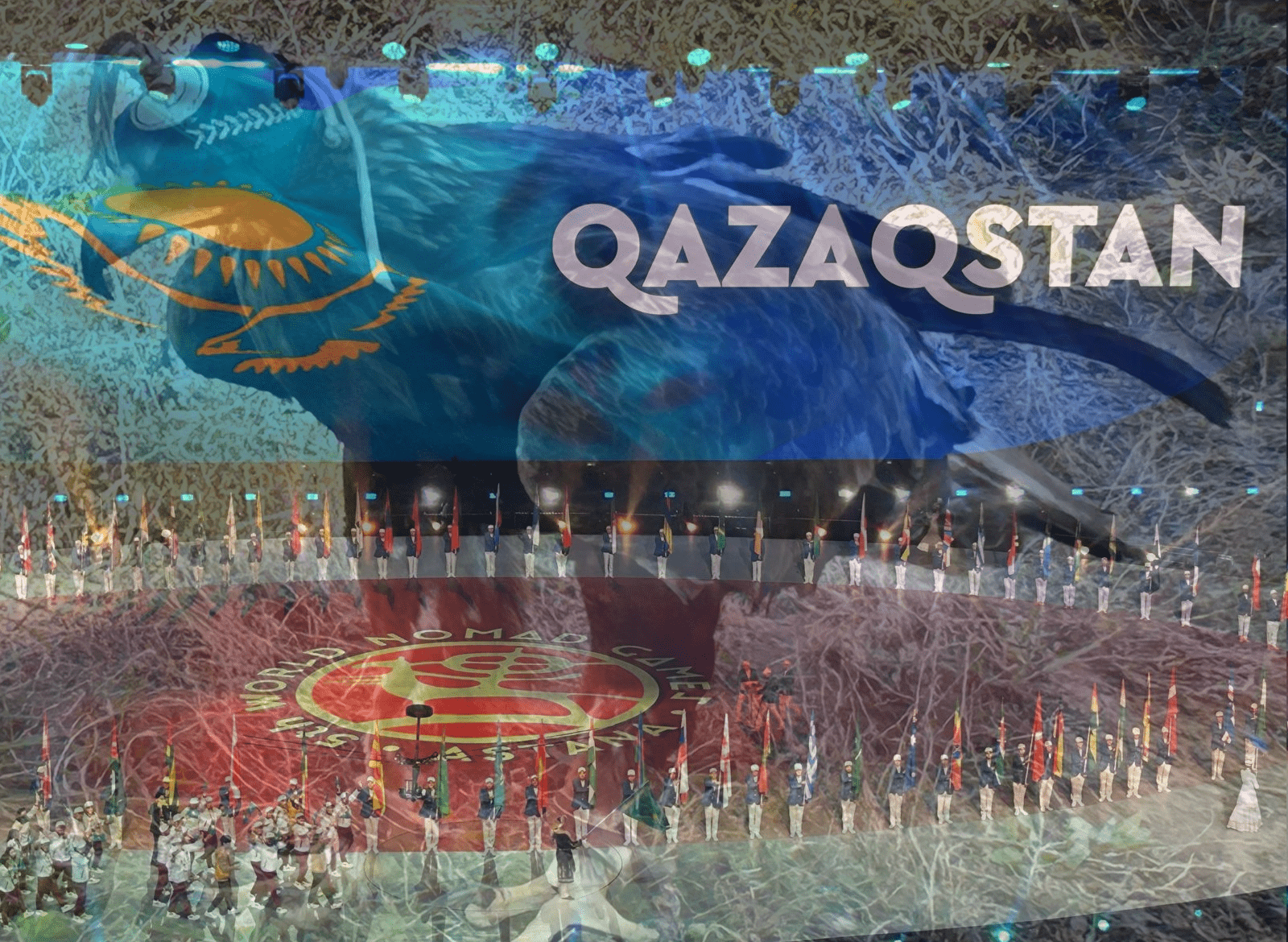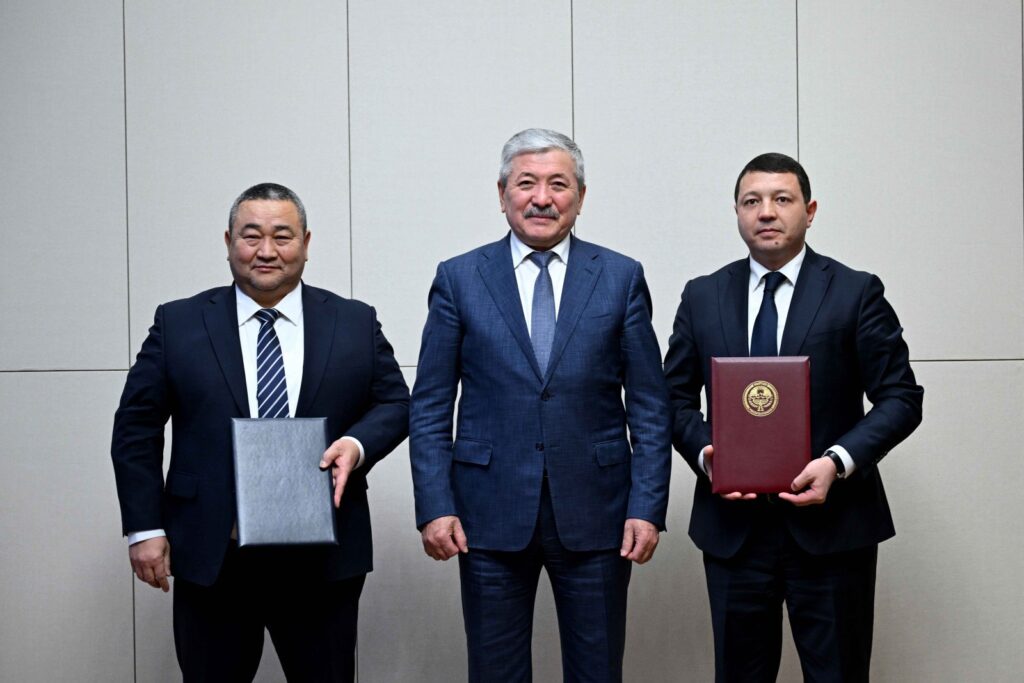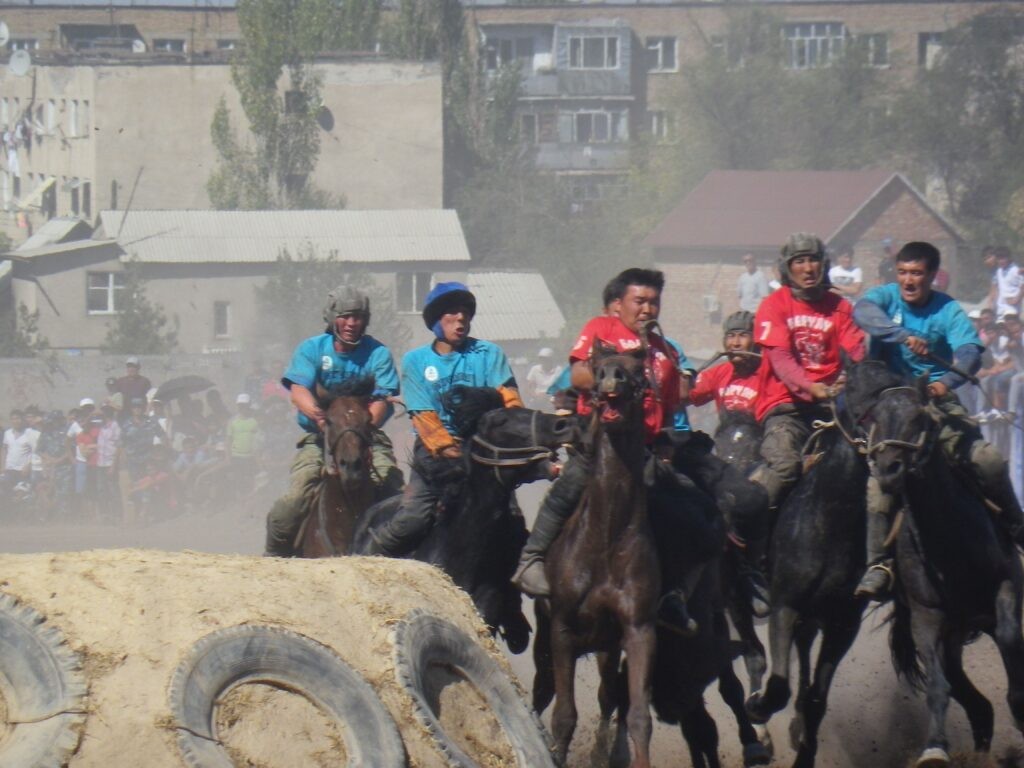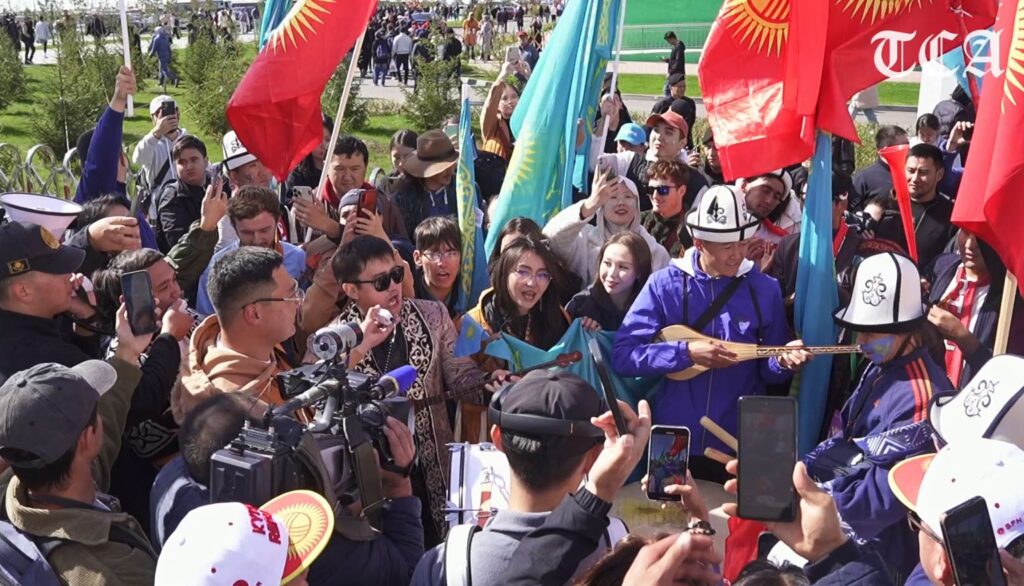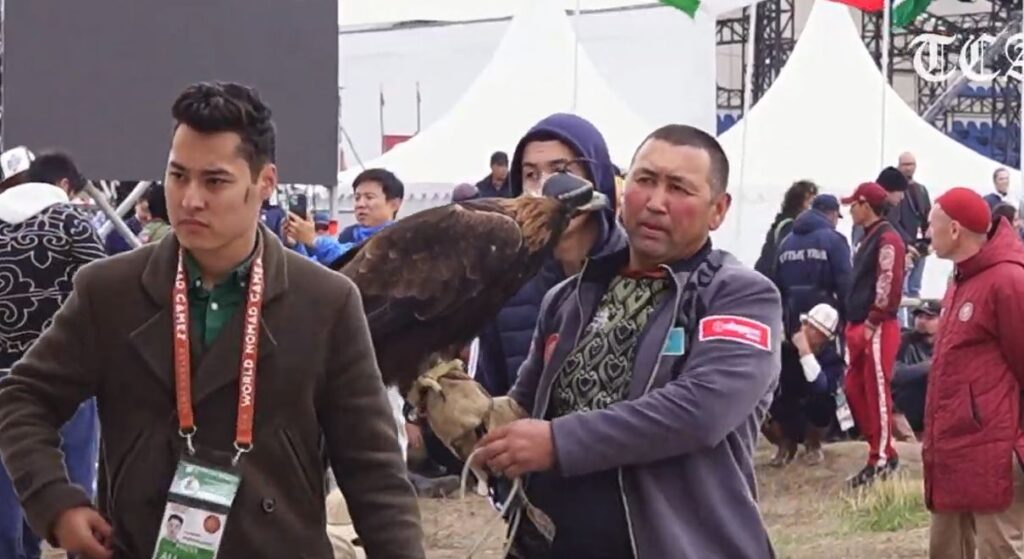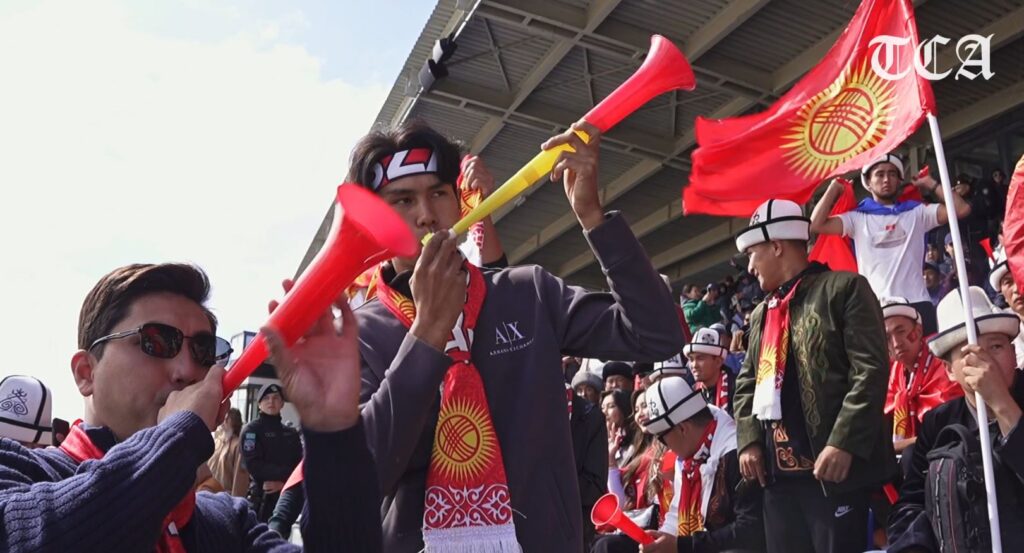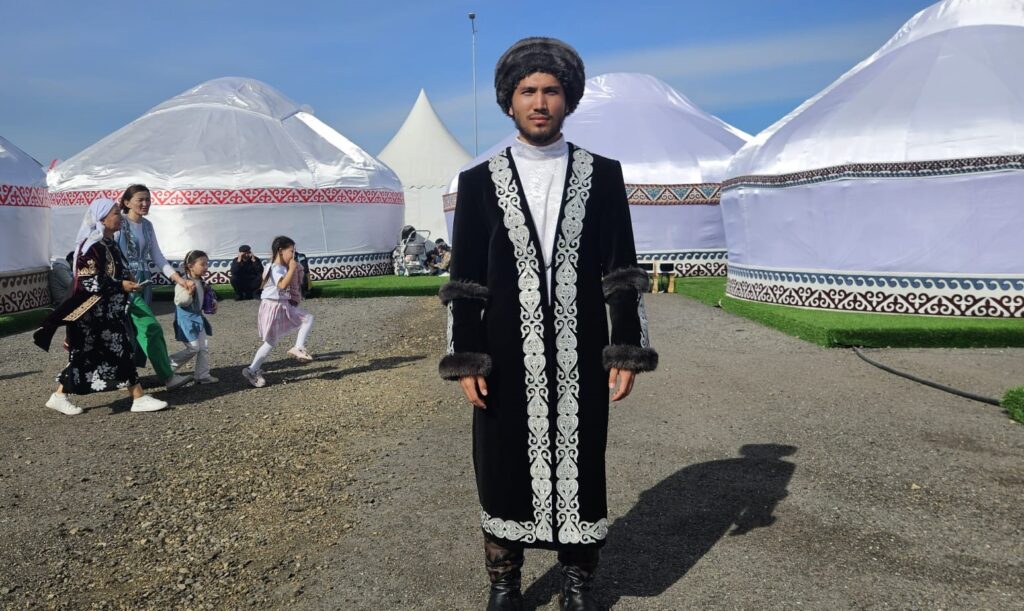Attending the World Nomad Games in Kazakhstan, one might be tempted to look for a possible political dimension, or the seeming lack thereof.
The 5th World Nomad Games have brought together in Astana more than 3,000 participants from 89 countries competing for 581 medals across 21 sports, with a prize fund of 250 million tenge ($521,000). This dwarfs the 19 nations which participated in the first iteration of the event, hosted in Kyrgyzstan in 2014, where just ten sports were held. Of course, the Games have expanded exponentially since then, and interest from visitors and media alike has also skyrocketed.
Kazakhstan’s Ministry of Tourism and Sports has stated that over 100,000 foreign tourists will attend the Games, which will “help showcase Kazakhstan’s cultural and sports heritage to a global audience, significantly boosting interest in tourism to the country.” Also hugely significant is the level of media interest, with outlets from 64 countries applying for accreditation. With competitors, visitors and media from around the globe, clearly the appeal of the Games has expanded far beyond those nations from which the heirs to nomadic civilizations hail. As for its cultural significance, it speaks volumes that the World Nomad Games has been included in the UNESCO list of Intangible Cultural Heritage.
The Games, however, are also acting as a semi-official summit, as evinced by the attendance of President Mirziyoyev of Uzbekistan, President Japarov of the Kyrgyz Republic, Gurbanguly Berdimuhamedov, the Chairman of the People’s Council of Turkmenistan, the Rais (Head) of Tatarstan, Rustam Minnikhanov, the Head of the Republic of Sakha (Yakutia), Aisen Nikolayev, the former president of Mongolia, Nambaryn Enkhbayar, the son of Turkey’s President, Bilal Erdogan, and more.
Given all this, the World Nomad Games as more than just an event, sporting or otherwise, and have been utilized as part of Kazakhstan’s strategic course in pursuit of a balanced and multi-vector foreign policy aimed at ensuring the best interests of the state, whilst positioning the nation as an increasingly important land-bridge between East and West, both in terms of trade and diplomacy.
This dynamic neutrality has made the Nomad Games in Astana the first international sporting event since the beginning of Vladimir Putin’s war in Ukraine in which the Russian team has been able to participate under the national flag. Spokeswoman for the Russian Foreign Ministry, Maria Zakharova, stated that the “Russian national team, comprising 150 athletes, was welcomed with applause in Kazakhstan’s capital, accompanied by a rendition of “Katyusha.” It’s a celebration of sport and friendship! Kazakhstan has reminded the world of what global sports should be: depoliticized, inclusive, and focused on promoting athleticism rather than being tainted by various perversions.”
This, however, does not mean that Kazakhstan is cosying-up to Russia in the slightest. Despite disruptions in trade chains and logistical problems, Astana has followed Western sanctions to the letter, much to Putin’s chagrin. In this ever more open and outward looking nation, rallies against Russia’s invasion have been allowed to be staged. Even the death of Alexei Navalny – no friend of Central Asia given the xenophobic stances he often adopted – was met with makeshift memorials.
Thanks to Kazakhstan’s efforts, however, the Russian team has been able to compete alongside the U.S. and other teams from nations with tense relations with Russia; and despite these dynamics, this has not caused any controversy in Kazakhstan or in those countries with adversarial relations with Russia. The genuinely depoliticized and open nature of the Games has only served to highlight the success of Kazakhstan’s diplomatic, multi-vector approach, which in June 2024 even saw Astana offer to host negotiations to end the war in Ukraine.
This stands in stark contrast to what happened at the Olympics in Paris earlier this year, when the International Olympic Committee’s decision to allow just over a dozen athletes from Russia and Belarus to compete under a neutral flag led to calls from some counties for a boycott.
Whilst the efficacy of allowing Russian athletes to perform at sporting events remains up for debate, certainly adopting such extreme positions in the West as banning teaching of the works of Fyodor Dostoevsky – who was himself sent to penal servitude in Siberia for reading books banned in Tsarist Russia – ultimately benefit no one.
In a geopolitical arena which is increasingly portrayed as black and white, Kazakhstan’s position has been far more nuanced, and has seen President Tokayev’s “multi-vector” foreign policy described as “visionary” by figures such as Ariel Cohen, a Non-resident Senior Fellow at the Eurasia Center of the Atlantic Council. By leveraging both its geographic location and its vast natural resources, particularly in energy, Kazakhstan has positioned itself as a key player in both regional and global affairs. The World Nomad Games has once again served to underline its growing international importance.
